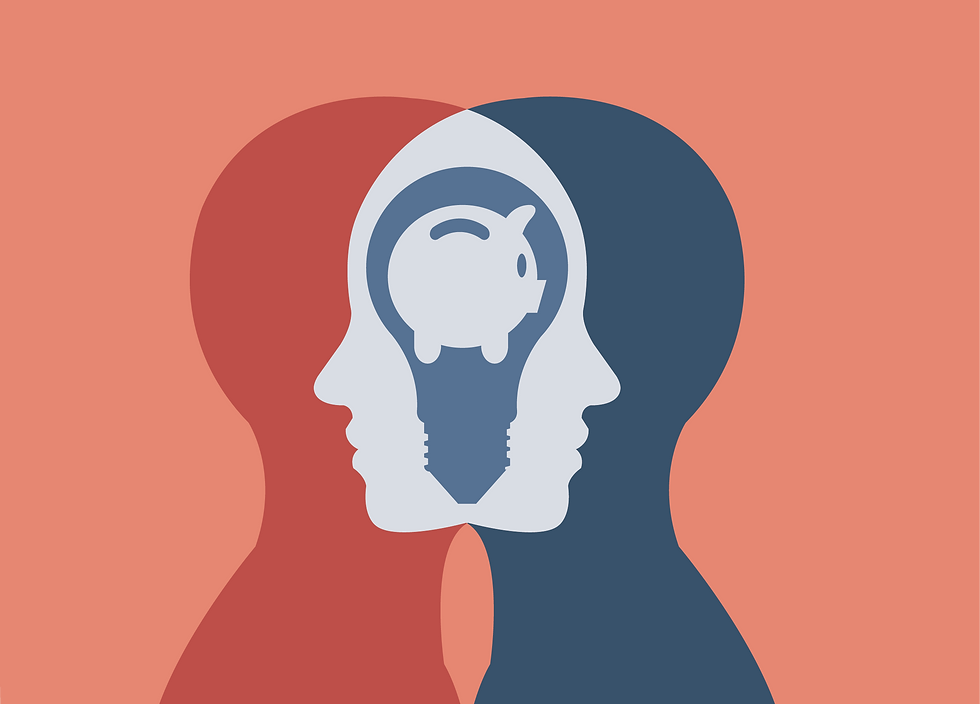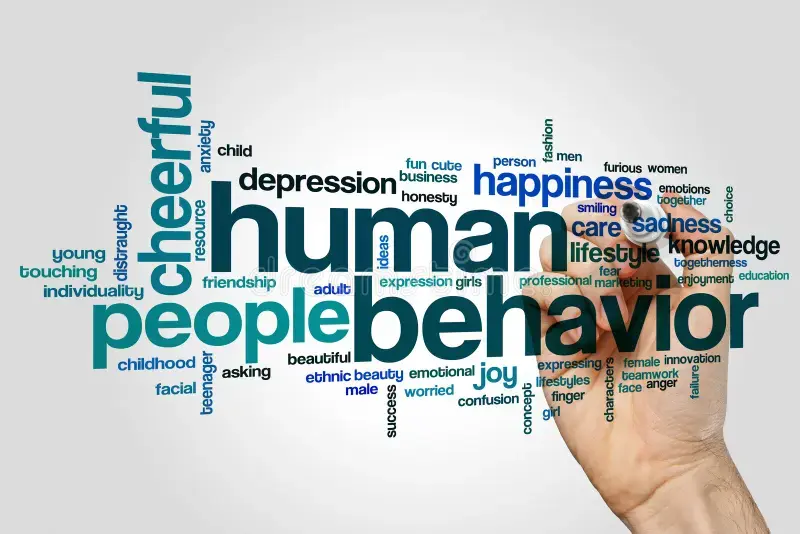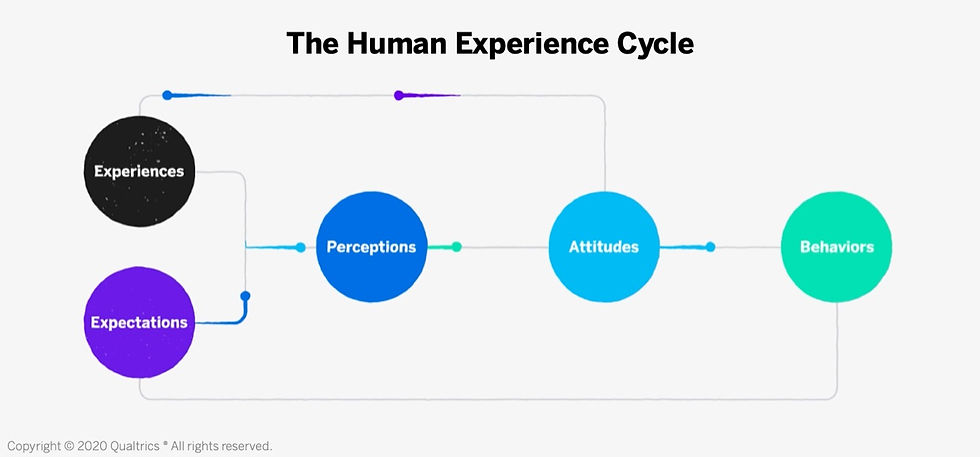Understanding Human Behaviour: A Foundation for Character Development
- khailareyno
- Apr 22, 2024
- 7 min read

Human behaviour refers to the range of actions and responses displayed by individuals in various situations. It is influenced by a complex relationship of factors, including biological, psychological, social, and cultural influences. Human behaviour can be conscious or unconscious, intentional or unintentional, and can vary widely between individuals and cultures. It is often driven by motivations, needs, desires, and emotions, and is shaped by past experiences, learning, and socialization. Understanding human behaviour is crucial in many fields, including psychology, sociology, anthropology, and, of course, storytelling. In storytelling, an understanding of human behaviour helps writers create believable characters and realistic interactions, making their stories more engaging and relatable to audiences.
Understanding human behaviour is a foundational aspect of character development in storytelling, as it allows writers to create characters that are relatable, complex, and believable. By delving into the intricacies of human behaviour, writers can develop characters with depth and authenticity. This understanding enables writers to create characters that feel like real people, with realistic behaviours, reactions, and emotions. By incorporating these realistic elements into their characters, writers can make them more relatable and engaging to audiences. Furthermore, understanding human behaviour allows writers to build character arcs that show how characters change and grow over the course of a story. Characters who exhibit realistic human behaviour are also more likely to evoke empathy and understanding from audiences, as their struggles and motivations are relatable and understandable.

Inside the body, human behaviour is driven by complex interactions between the brain, nervous system, hormones, and other physiological processes. When we experience stimuli from the environment, such as seeing, hearing, or feeling something, our sensory organs send signals to the brain. The brain processes these signals and initiates a response, which may be conscious or unconscious.
Behaviour is controlled by a combination of factors, including biological, psychological, and social influences. Here are some key factors that play a role in controlling behaviour:
Brain and Nervous System
Prefrontal cortex is a part of the brain that's like the boss or manager. It helps us make decisions and control our emotions. It's important for things like planning, problem-solving, and staying focused. The prefrontal cortex is one of the last parts of the brain to fully develop, which is why teenagers and young adults sometimes have trouble controlling their impulses or making good decisions.
Hormones are chemicals in our bodies that act like messengers, traveling through our bloodstream to tell different parts of the body what to do. They play a big role in things like growth, metabolism, and mood. For example, adrenaline is a hormone that makes us feel alert and ready for action, like when we're scared or excited. Another hormone, cortisol, is released in response to stress and can influence behavior and mood. Overall, hormones are crucial for keeping our bodies working properly.
Amygdala is a part of the brain that helps us process emotions, especially fear and pleasure. It's like a little alarm system that can make us feel scared or excited in certain situations. The amygdala also helps us remember emotional events, which can affect how we react to similar situations in the future.
Neurotransmitters are also like messengers in the brain that help cells communicate with each other. They play a big role in how we feel and act. For example, serotonin can make us feel happy, while dopamine can make us feel motivated. These neurotransmitters are important for things like mood, memory, and movement.
Genetics
Genetic factors play a crucial role in determining certain behaviours and traits, influencing everything from our personality traits to our vulnerability to certain mental health disorders. Genes can influence behaviour by making individuals more prone to specific traits or tendencies. For example, someone may inherit genes that make them more likely to be adventurous or cautious, outgoing or reserved. These inherited traits can manifest early in life and persist throughout adulthood, shaping how individuals interact with the world around them.
Moreover, genetic factors can influence an individual's risk of developing certain mental health disorders. For instance, genes can play a role in determining whether someone is more prone to conditions like depression, anxiety disorders, or schizophrenia. While genetics is just one factor that contributes to the development of these disorders, understanding the genetic component can help us better understand why certain individuals may be more susceptible and inform strategies for prevention and treatment.
Environment
Environmental factors play a significant role in shaping behaviour, with influences ranging from upbringing and culture to social interactions. For instance, children often learn social norms and behaviours from their caregivers and peers, which can have a lasting impact on their behaviour as they mature.
Cultural beliefs and practices play a significant role in shaping behaviour by establishing norms and expectations within a society. These cultural norms dictate what is considered acceptable or desirable behaviour in a given context. For example, in some cultures, showing respect for elders may be highly valued and expected, leading individuals to behave in a respectful manner towards older individuals.
Social influences, such as peer pressure or societal expectations, can have a profound impact on behaviour, especially during the adolescence when individuals are more vulnerable to outside influences. During adolescence, in particular, the desire to fit in and be accepted by peers can lead individuals to conform to group norms and behaviours, even if they are not in line with their own beliefs or values. Likewise, societal expectations regarding behaviour, appearance, and achievement can influence how individuals behave and perceive themselves.
Family dynamics and relationships can have a profound impact on behaviour, shaping how individuals express themselves and interact with others. For example, individuals who grow up in families where physical affection is common may be more likely to use touch as a form of communication. This early exposure to physical touch as a means of expressing love and affection can influence how these individuals perceive and use touch in their own relationships later in life. Similarly, the way emotions are expressed and managed within the family can also impact behaviour. Overall, family dynamics and relationships play a significant role in shaping nonverbal behaviour, highlighting the importance of early experiences in influencing how individuals communicate and relate to others.
Personal experiences, beliefs, and attitudes can profoundly influence behaviour, shaping how individuals express themselves and interact with others. For example, someone who has experienced trauma may display nonverbal cues associated with anxiety or fear, such as avoiding eye contact, fidgeting, or tense body language. These nonverbal cues may reflect their internal emotional state and serve as a way to communicate their feelings to others. Similarly, personal beliefs and attitudes can also influence behaviour. For instance, someone who strongly values personal space may unconsciously maintain a greater distance from others during interactions.
Learning and Experience
Learning is fundamental in shaping behaviour, serving as a key mechanism through which individuals acquire new behaviours and adapt to their environment. Through experiences, individuals learn what behaviours are rewarded or punished, which can significantly influence their future actions. This process, known as conditioning, plays a crucial role in shaping behaviour over time. For example, if a child is praised for sharing toys with others, they are more likely to continue this behaviour in the future. Conversely, if a behaviour is consistently met with punishment, such as being scolded for being dishonest, the individual is likely to avoid that behaviour in the future. By learning from the consequences of their actions, individuals develop a range of behaviours that help them navigate their social and physical environments effectively.
Psychological Factors
Psychological factors play a significant role in shaping behaviour, encompassing a range of aspects such as personality traits, beliefs, and attitudes. For example, someone who is very conscientious – organized, responsible, and reliable – is likely to act more responsibly. Similarly, someone with strong beliefs and attitudes about the importance of honesty may be less likely to engage in dishonest behaviours. These psychological factors can influence behaviour by guiding how individuals perceive and respond to different situations, ultimately shaping their actions and decisions.

Understanding human behaviour is a complex process that involves observation, empathy, and a willingness to explore the complexities of the human mind.
Here are some key steps to help you understand human behaviour:
Observe: Pay attention to people's actions, body language, and facial expressions in different situations. Observing how people behave in various contexts can provide valuable insights into their thoughts, feelings, and motivations.
Listen: Actively listen to what people say and how they say it. Pay attention to tone of voice, inflection, and nonverbal cues, as these can often reveal more than words alone.
Ask Questions: Engage with others in meaningful conversations and ask open-ended questions to gain a deeper understanding of their perspectives and experiences. Be curious and approach interactions with an open mind.
Practice Empathy: Put yourself in other people's shoes and try to understand their emotions and motivations. Empathy allows you to connect with others on a deeper level and see the world from their point of view.
Study Psychology: Read books, articles, and studies on psychology to gain a better understanding of human behaviour. Learn about different theories and concepts that explain why people behave the way they do.
Reflect: Take time to reflect on your own behaviour and motivations. Understanding yourself can provide valuable insights into human behaviour in general.
Be Open-Minded: Recognize that human behaviour is complex and can be influenced by a variety of factors, including culture, upbringing, and personal experiences. Approach each person as an individual with their own unique background and perspective.
Seek Feedback: Ask for feedback from others about your own behaviour. This can help you gain insights into how your actions are perceived by others and how you can improve your interactions.
To understand human behaviour fully, we must engage in a nuanced process that involves observation, empathy, and a readiness to delve into the complexities of the human mind. By using these tools to examine behaviour, we can develop a deeper understanding of ourselves and others, fostering more meaningful interactions and relationships.


